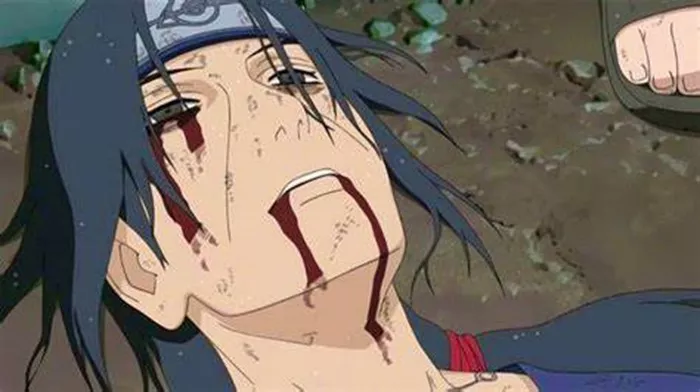The relationship between Sasuke and Itachi Uchiha is one of the most complex and poignant narratives in the “Naruto” series. At the heart of this story lies the tragic conflict between two brothers, shaped by love, betrayal, and the burdens of their respective choices. The question of whether Sasuke felt bad after killing Itachi is not merely a matter of emotional response but involves a deeper exploration of their shared history, motivations, and the psychological ramifications of their actions.
The Uchiha Brothers’ Relationship
Sasuke and Itachi’s relationship began with a bond of admiration and affection. As children, Sasuke looked up to Itachi, who was a prodigy within the Uchiha clan and a celebrated ninja of the Hidden Leaf Village. However, this admiration turned into a deep-seated resentment after Itachi committed the horrific act of slaughtering their entire clan, sparing only Sasuke. This act was not just a betrayal but a catalyst that set Sasuke on a path of vengeance, driving him to become stronger with the singular goal of killing his brother.
The Uchiha Massacre
The Uchiha massacre is a pivotal event that defines the trajectory of both brothers. Itachi’s decision to kill their family was rooted in a complex web of political intrigue and a desire to prevent a coup that could lead to war. Despite his intentions, the act left Sasuke traumatized and fueled his desire for revenge. Sasuke’s journey was marked by a singular focus on power, which he believed would enable him to confront and kill Itachi. This focus blinded him to the nuances of their relationship and the sacrifices Itachi made for his sake.
See Also: Why Did Itachi Let Sasuke Win?
The Final Confrontation
The climactic battle between Sasuke and Itachi is fraught with emotional intensity. As they face off, the weight of their shared history looms large. Sasuke, driven by vengeance, fights with everything he has, while Itachi, who is gravely ill, fights with the intention of pushing Sasuke to his limits. This battle is not just a physical confrontation but a culmination of their emotional struggles. Itachi’s actions during the fight suggest that he is not merely trying to win; he is allowing Sasuke to defeat him, fulfilling his desire for Sasuke to grow stronger.
Sasuke’s Emotional State Post-Battle
After the battle, Sasuke stands over Itachi’s lifeless body, a mix of triumph and confusion washing over him. He has achieved his goal, but the victory is hollow. The man he has idolized and hated in equal measure is gone, and the reality of his brother’s sacrifices begins to seep into his consciousness. Sasuke is left grappling with a profound sense of loss and the realization that Itachi’s motivations were far more complex than he had ever understood.
The Weight of Guilt and Regret
In the aftermath of Itachi’s death, Sasuke experiences a tumultuous emotional journey. Initially, he feels a sense of vindication, having avenged his family. However, as the truth about Itachi’s actions comes to light—revealing that Itachi killed their clan to protect Sasuke and the village—Sasuke is overwhelmed by guilt and regret. He realizes that he has killed not just his brother but also the one person who truly cared for him. This revelation shatters his perception of revenge and forces him to confront the consequences of his actions.
The Transformation of Sasuke’s Character
Sasuke’s journey does not end with Itachi’s death. Instead, it marks the beginning of a new chapter in his life. The guilt he feels transforms him, leading him to seek redemption and a deeper understanding of his brother’s sacrifices. Sasuke’s character evolves from one driven by revenge to one seeking to honor Itachi’s memory. This transformation is crucial in understanding the depth of his feelings post-battle.
The Impact of Itachi’s Death on Sasuke’s Path
Itachi’s death serves as a turning point for Sasuke. The burden of guilt and the weight of his brother’s legacy shape his future decisions. He becomes more introspective, grappling with the moral implications of his past actions. This internal conflict drives Sasuke to seek a path of redemption, ultimately leading him to protect the village and his loved ones, a stark contrast to his earlier desire for destruction.
Conclusion
In conclusion, Sasuke’s feelings after killing Itachi are complex and multifaceted. Initially, he experiences a sense of victory, but this quickly gives way to guilt and regret as he learns the truth about Itachi’s motivations. The emotional turmoil that follows Itachi’s death profoundly impacts Sasuke’s character development, leading him to seek redemption and a deeper understanding of his brother’s sacrifices. The relationship between Sasuke and Itachi serves as a poignant exploration of love, betrayal, and the burdens of choice, making their story one of the most compelling arcs in the “Naruto” series.


